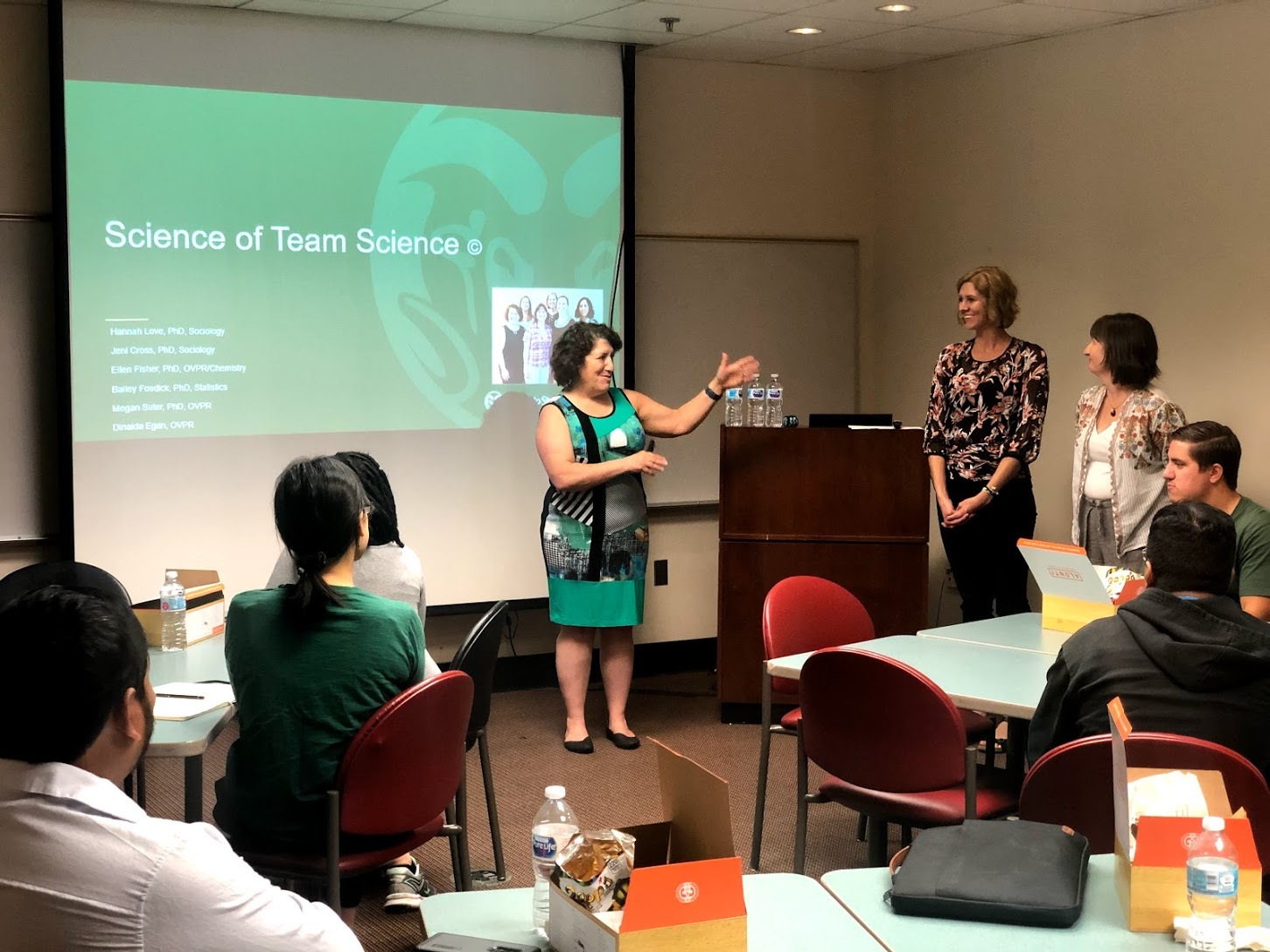SC CTSI Student Blog Captures Unique Team Science Workshop
Learn more about SC CTSI's Team Science Workshop that took place on September 26th, 2019
On September 26, 2019, the Southern California Clinical and Translational Science Institute (SC CTSI) welcomed the Colorado State University Science of Team Science members to provide a team science workshop. The workshop focused on effective ways to work collaboratively in multidisciplinary team settings, specifically scientific research teams. Training on fundamental principles of creating and managing an effective team and the best ways to encourage team development was provided by Dr. Ellen Fisher, Professor of Chemistry and the Assistant Vice President for Strategic Initiatives; Dr. Jenni Cross, Professor of Sociology and Director of Research for the Institute for the Built Environment; and Dr. Hannah Love, a Team Science Facilitator with a PhD in Sociology.

The Science of Team Science members kicked off the meeting with an activity that demonstrated the four different roles that any successful team should have:
- a mover who leads meetings or facilitates discussions;
- a follower who supports the mover by following their lead;
- a counterer who brings something new and different to the discussion;
- and an observer who watches the action without directly participating.
Mobility within these roles is considered a key factor in team success. Teams become dysfunctional when individual people get stuck in one role, and there is no proper movement within these roles. However, habit and routine cause people to naturally retreat to their comfort zones. A possible solution to this problem that was explored was to try rotating duties every meeting to allow everyone a chance at playing a different role.
The team members also discussed the benefit of setting team ground rules, including not interrupting others, being respectful, critiquing ideas rather than individuals, understanding conflict and disagreement is necessary, ensuring all team members have an equal ability to participate, having open and honest participation, and simply having fun. The group stressed the importance of ground rules in helping to improve participation and team interactions.
You might ask: what is team science?
Team science is not based on a homogenous group of people from one singular field of knowledge working together; rather, it is about people coming together from various backgrounds and disciplines to do something truly new and innovative. In order to do this, the existing structure of the stereotypical team, in which there is an obvious pre-established hierarchy and information flows upward in a vertical pattern to the leader, often a principal investigator, must be abolished. Instead, team structure should represent that of an integrative team, where information is shared back and forth in a cluster, in order to ensure that people of different roles are all represented despite their academic standing or level of knowledge.
Team Science is highly applicable today for two reasons. First, global challenges are always in need of being solved; however, one single scientific discipline cannot approach this alone. People from different disciplines must work together to solve these large scales, multidisciplinary problems. Second, calls for research proposals have increasingly drawn attention to the fact that large, complex teams of people are needed to solve any kind of problem. Additionally, publications by teams, rather than individuals, have been cited more and have had greater impacts. Presenters highlighted in the meeting that the National Institutes of Health used the word team science in a recent group of proposals over 40 times! Team science principles should be integrated more into teams everywhere in order to foster better team interactions and make collaborations worthwhile.
A huge thanks to the Colorado State University Science of Team Science members for helping to introduce to us a widely applicable discipline in the world of team management and development.
See more photos of the workshop here.
Author Note: Poorvi Gorripati is a USC freshman and Global Health major planning to pursue a degree in medicine. She is a communications intern at the Southern California Clinical and Translational Science Institute.



